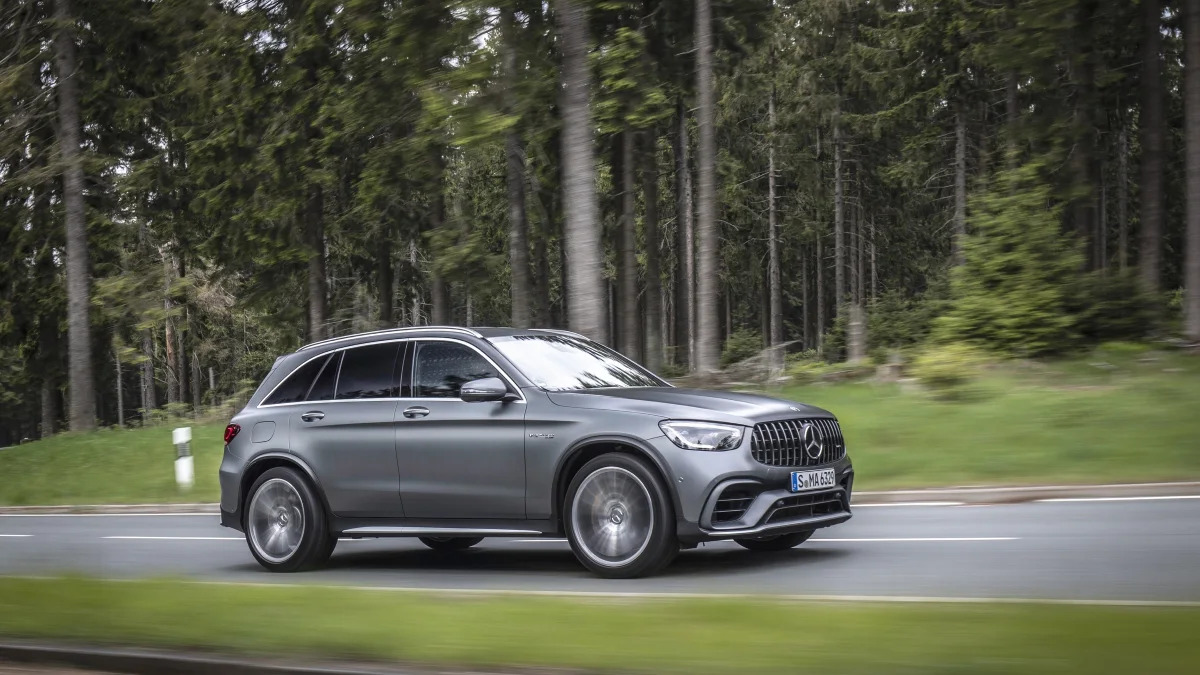Automakers that sell cars in Europe are facing what the Financial Times called the "carbon crunch" next year. In 2020, carmakers will pay fines to European regulators if their fleetwide CO2 emissions exceed a certain number. The number is different for every carmaker based on average fleet weight, but the punishment is draconian for every carmaker over the limit: 95 euros ($106 U.S.) for every gram over the limit for every car sold. Daimler, parent company of Mercedes-Benz, faces a target of about 100g/km, but average emissions of 138g/km. If in 2020 Mercedes held steady at 138g/km and matched its 2018 Europe-wide sales figure of 877,988 units, that's a fine of $3,169,536,680 euros, or roughly $3.526 billion. For one year.
That's not an exact number because there are qualifiers in play for the next couple of years as the EU phases in the system. Nevertheless, it's a tough ask for Daimler to lower the CO2 number with the firm's conventional offerings when even the Mercedes-Benz A 180 sedan puts out 120g/km. A popular model like the Mercedes-Benz GLC 200 4Matic, listed with CO2 emissions of 162g/km at the low end, is a problem child, and something like the Mercedes-AMG GLC 64 4Matic+, at 278g/km, is a delinquent. This is why, according to unnamed dealers speaking to the Financial Times, it's possible that Mercedes-AMG will choose to limit production of vehicles with the highest emission figures next year in order to lower Daimler's fleetwide average. A few retailers forecast the chance of "a reduction of 75 percent in availability of some models within the AMG range."
The FT article containing that nugget is titled, "Can European carmakers accelerate electric transition?", because that's what this is ultimately about – getting more EVs and ultra-low-emission vehicles on the roads. The targets haven't sneaked up on automakers, either; the EU adopted CO2 reforms and fine schedule in 2008. Yet companies and their howling, ravenous shareholders are in business to make as much money as possible, which means giving buyers what buyers want. Not nearly enough buyers want electric vehicles – less than 3% of buyers did in 2018. And they no longer want the diesels – oil burners put out a fifth less CO2 than gas-engined cars – that automakers had been figuring heavily into their plans. Consumers are loading up on gas-powered crossovers and SUVs. Speaking of the disconnect between automaker requirements and consumer demands, Daimler CEO Ola Kallenius told investors, "What we can’t control is buyer behavior, but we have the technologies within our portfolio to get within target range."
The issue is when. Even with the sliding scale of fines, Bernstein analyst Max Warburton told the FT, that a similar sales mix to 2019 repeated in 2021 would ring up 25 billion euros in combined penalties for auto companies. This could help explain Mercedes-Benz's recent delay of the EQC for the U.S. market, choosing to sell as many as it can in Europe, and FT suspects AMG "is expected to restrict sales of 3-litre engines in its smaller and medium-sized vehicles, pushing consumers towards less powerful models."
Daimler isn't alone in confronting this crisis. The FT piece opened with a story of a buyer in Spain who ordered a Kia e-Niro in April, then was informed by the dealer that Kia wouldn't deliver the car until 2020 so it could book the sale under the new regime. Toyota's hybrid fleet is expected to help the carmaker come in under the target. Yet Mazda, which pooled its fleet with Toyota's to lower its CO2 average, will still slash European MX-5/Miata sales. Ford has loaded up vehicles with 48-volt mild hybrid systems trying to squeeze incremental gains. Fiat Chrysler pooled with Tesla to escape without fines in 2019 and 2020, but the carmaker paid 600 million euros to fund global compliance in 2018, and 120 million euros just in Europe this year as part of a global bill that will exceed last year's figure. The merger will change the math, but the Peugeot brand is already compliant.
The knock-on effects, such as the smaller profit margins from EVs and smaller vehicles, will make their way through the system, too. As PSA Groupe CEO Carlos Tavares said, “Each time I’m selling an EV, I’m making much less money than selling anything else. I would therefore like to limit the number of EVs to a certain level." Over at Nissan, for instance, the Japanese automaker didn't include the Leaf in dealer incentive programs, so dealers didn't push the model. That changes next year, according to retailers who spoke to FT.
When EVs still need enormous sums of investment, limiting cash-cow sales will put finance departments under more duress, and cause the kind of headcount reductions already announced at Ford (7,000 jobs), Daimler (10,000 jobs) and Audi (10,000 jobs). Oh, and car sales in general are expected to decline over the next few years.










Sign in to post
Please sign in to leave a comment.
Continue